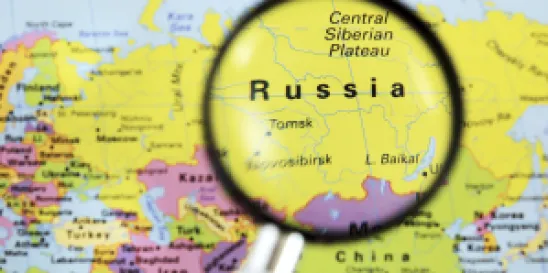The Price Cap Coalition is an international partnership of the United States, the G7, the European Union, and Australia that was established in December 2022 to limit Russia’s ability to fund its war against Ukraine through sales of Russian crude oil and petroleum products. The Coalition implemented an Oil Price Cap (the “Price Cap”) on Russian origin crude oil and other petroleum products. The Price Cap prohibits western maritime providers, insurers, and oil brokers, among others, from dealing in Russian-origin crude oil that is sold from a Russian port above $60 per barrel. Demonstrating its intent to enforce the Price Cap, the Office of Foreign Assets Control (OFAC) of the U.S. Treasury Department recently issued sanctions on vessels for carrying Russian-origin crude oil above the regulatory price. We discussed two such enforcement actions here: OFAC Sanctions Two Non-U.S. Firms For Breaching Russia Price Cap Policy.
On Feb. 1, 2024, the Coalition released the “Oil Price Cap Compliance and Enforcement Alert”, indicating its intent to remain proactive in enforcing compliance with The Price Cap. The alert builds on previous Price Gap guidance, including an April 2023 OFAC publication, and includes an overview of evasion methods that have been increasingly used to circumvent the Price Cap. Specifically, the alert provides detailed descriptions of some red flags indicating possible evasion methods that industry stakeholders need to diligently monitor:
- Opaque shipping and ancillary costs: the failure to itemize costs and attempts to obfuscate price, shipping, freight, customs, and insurance costs.
- Use of a complex supply chain and third-party intermediaries: the use of third-party shell companies to conceal origination and ownership of Russian-origin oil as well as frequent changes in the ownership of vessels used to transport such oil.
- False flagging and flag-hopping: the use of vessels that continue to use a country’s flag even after being deregistered from that country’s fleet, or changing flags multiple times during a short period of time;
- “Shadow” fleet vessels: the use of older vessels with anonymous ownership that rely on sporadic or untested insurance and do not use industry-standard seaworthiness classifications.
- Voyage irregularities: obfuscation of a vessel’s voyage from its port of loading to its destination, including the use of ship-to-ship transfers at night or in areas known for illicit activity and without prior notification, and the manipulation of a vessel’s Automatic Identification System.
The alert also provides recommendations for industry stakeholders on how to better identify evasion methods as well as how to mitigate their risk and ensure compliance with the Price Cap. For example, the Coalition recommends that industry stakeholders receive attestations from counterparties when lifting or loading Russian-origin crude; require itemization of costs on invoices and bills of lading; flag unusually high ancillary costs; be alert to the use of vessels that may be engaged in false flagging or part of a shadow fleet; and scrutinize a vessel’s route. The alert encourages industry stakeholders to alert relevant agencies about any signs of evasion of the Price Cap in transactions involving Russian-origin crude oil.





 />i
/>i

